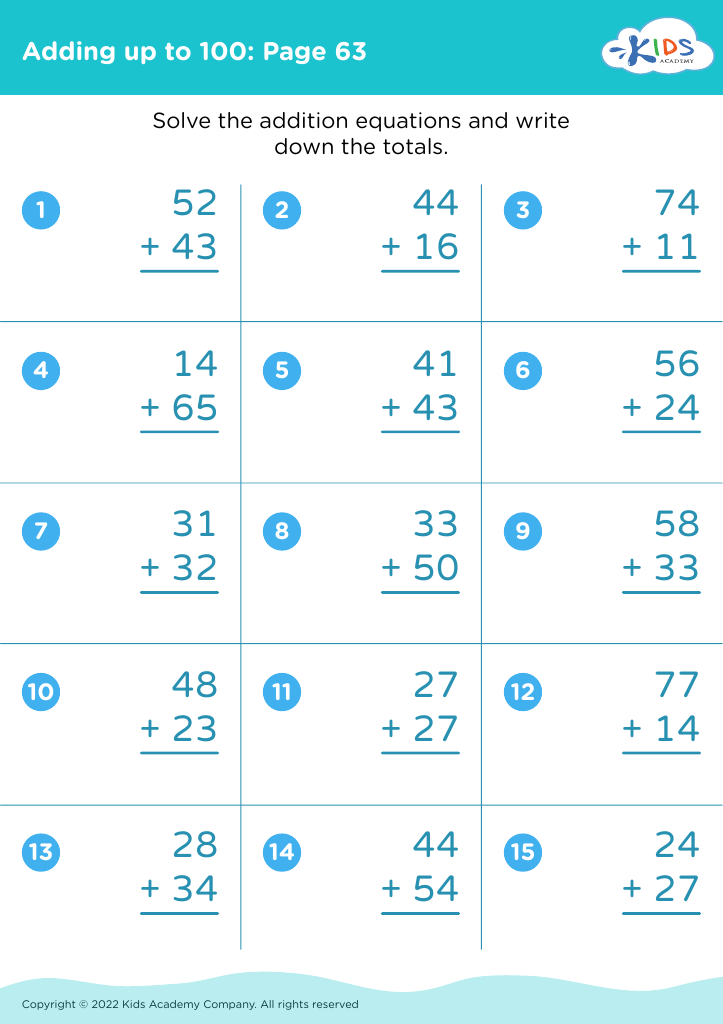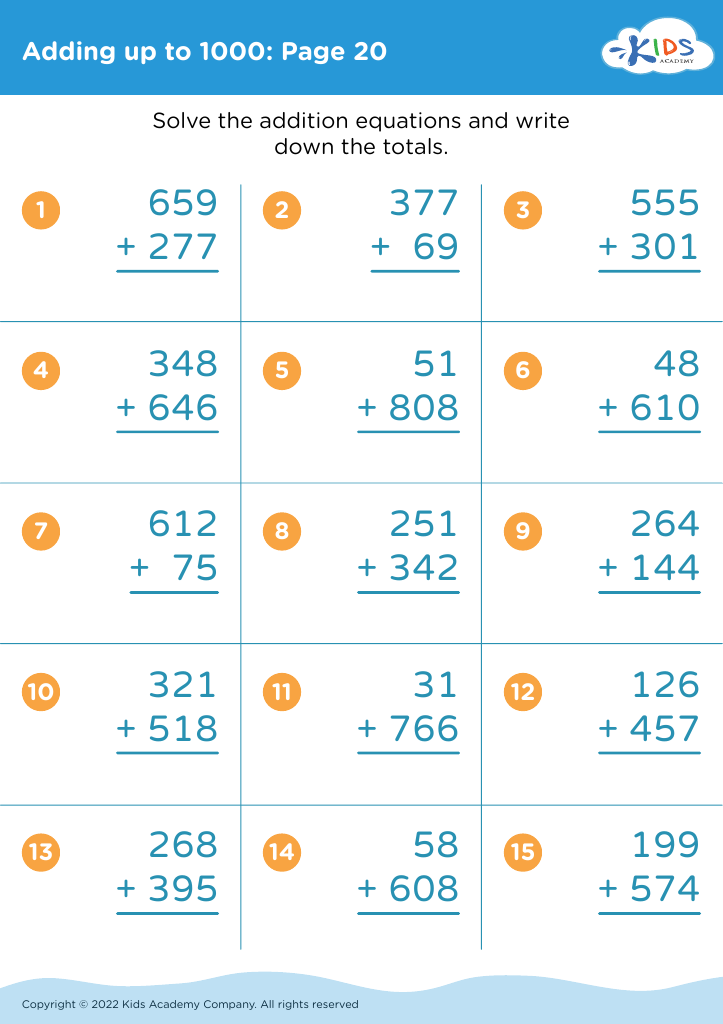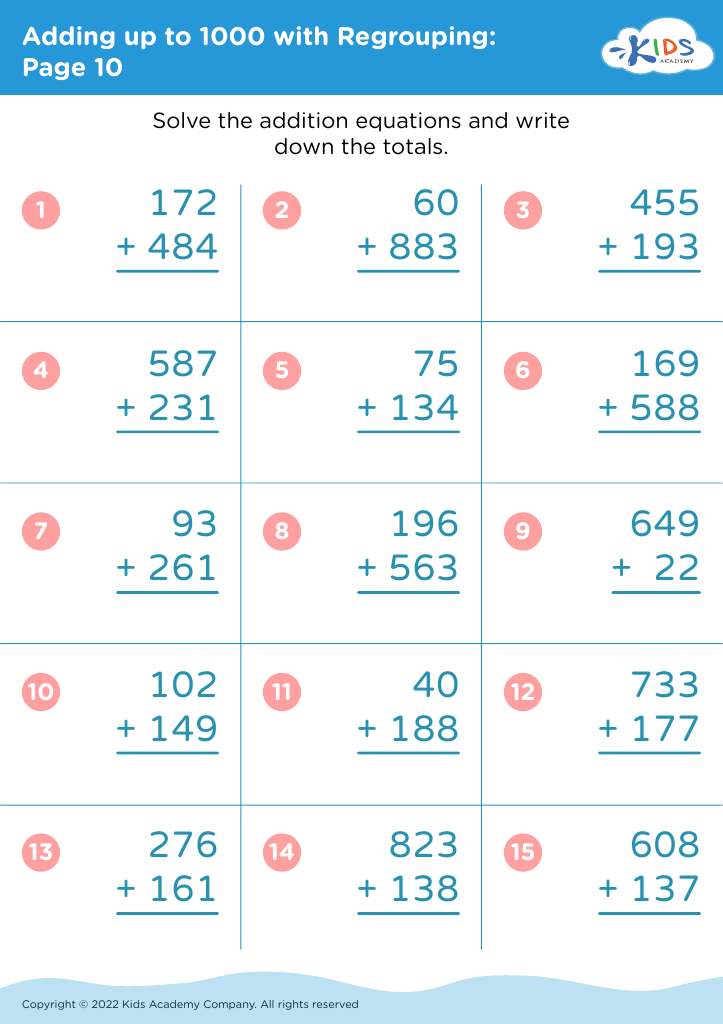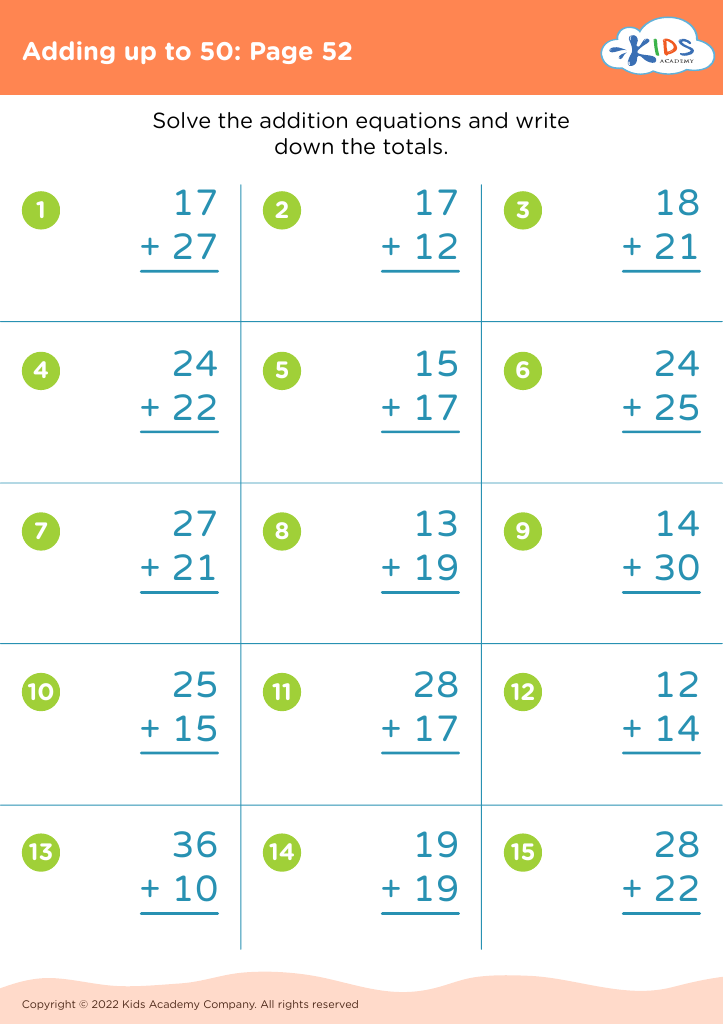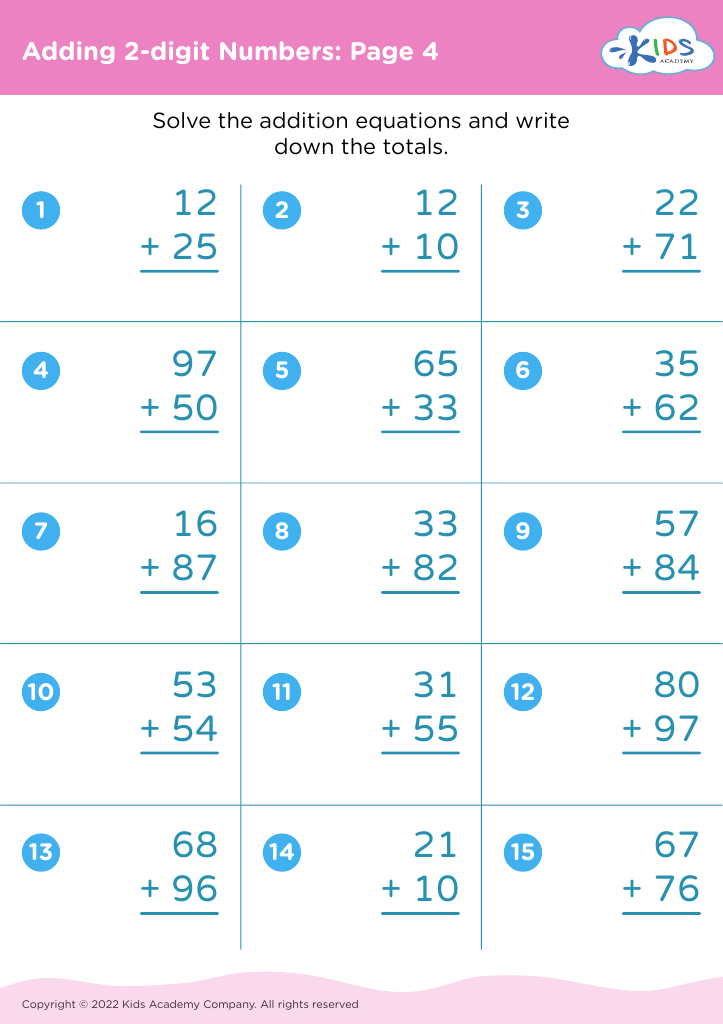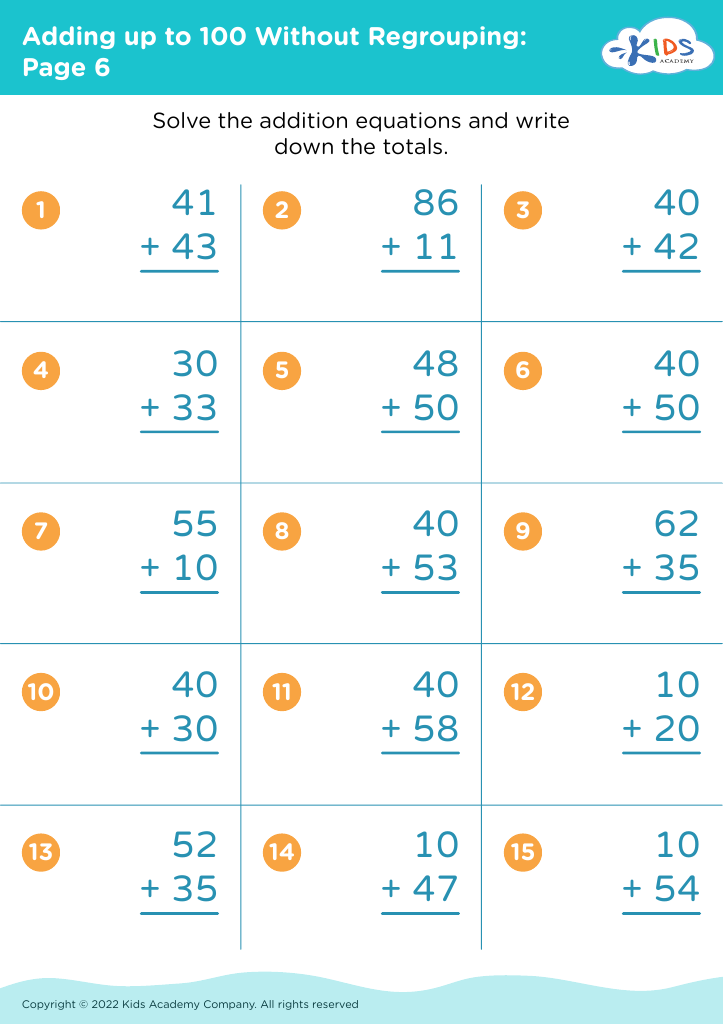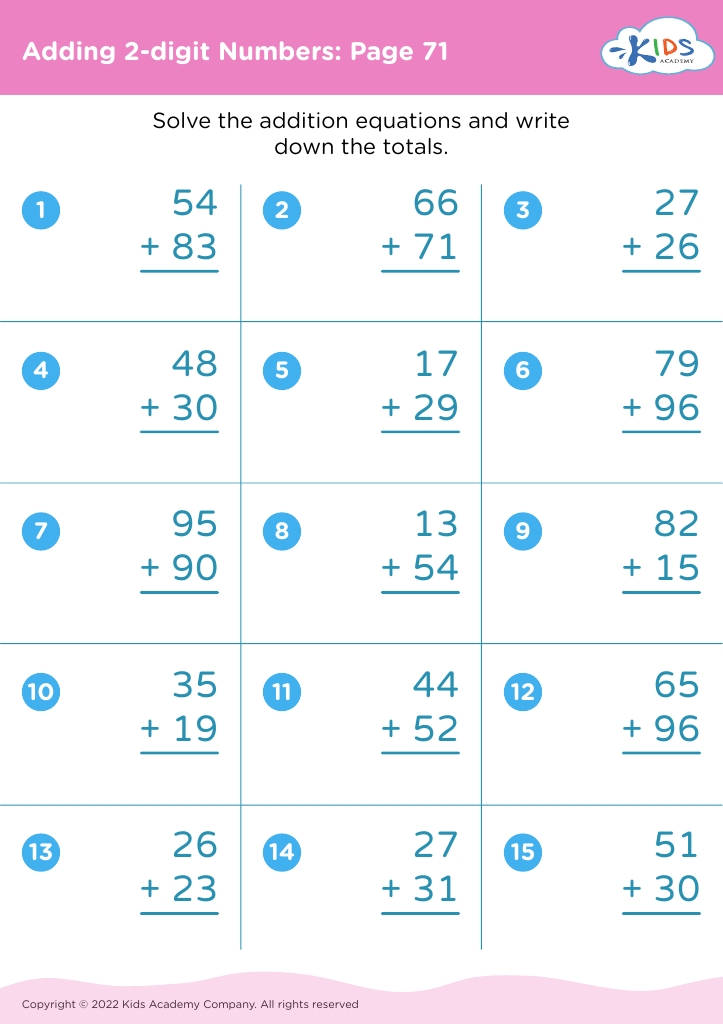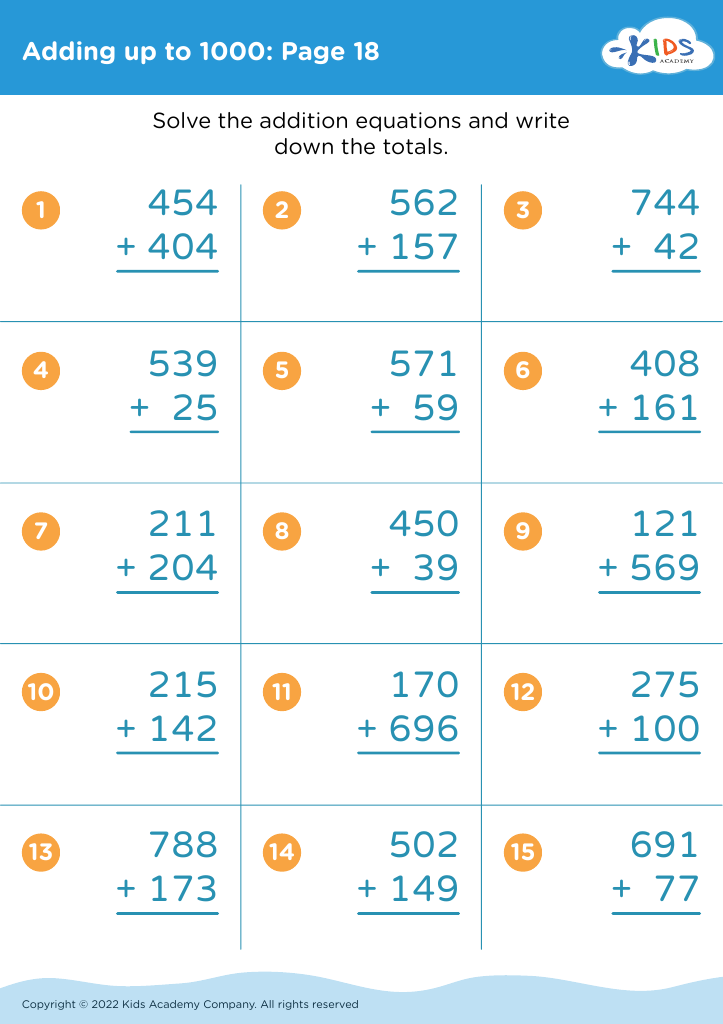Understanding symmetry Addition Worksheets for Ages 6-7
24 filtered results
-
From - To
Unlock the wonders of symmetry with our engaging Addition Worksheets designed specifically for children ages 6-7. These thoughtfully crafted resources provide young learners with an enjoyable and interactive way to master addition while exploring the concept of symmetry. Our worksheets incorporate visually appealing patterns and illustrations that not only enhance mathematical skills but also foster critical thinking and creativity. Kids will love identifying symmetrical shapes and solving addition problems in a playful context, making learning fun and effective. Perfect for home or classroom use, these worksheets lay a strong foundation for future mathematics success. Explore our collection and inspire a love for learning today!
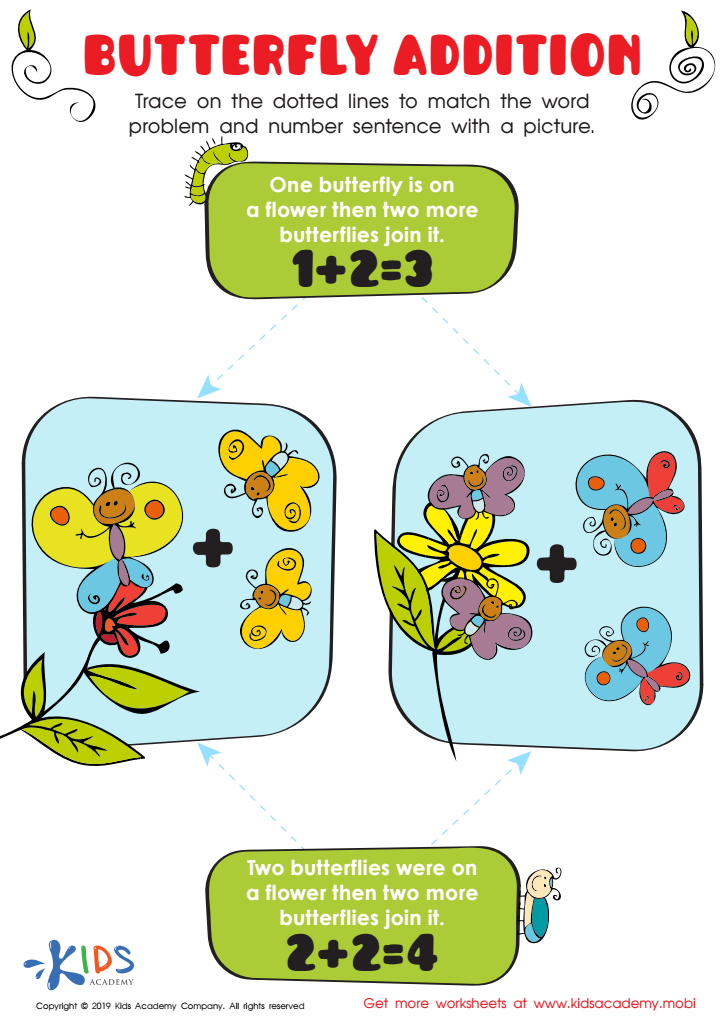

Butterfly Addition Worksheet
Understanding symmetry and addition for children aged 6-7 is crucial for several reasons. At this age, children are developing foundational math skills, and the concept of symmetry introduces them to patterns and relationships, enhancing spatial awareness. Recognizing symmetrical shapes helps children understand their environment better, fostering critical thinking and creativity as they explore art, nature, and design.
Moreover, addition, a basic arithmetic operation, is essential for daily problem-solving. Activities involving symmetry and addition can be seamlessly integrated into engaging games and hands-on learning, which keep children motivated and curious about math. Understanding these concepts at an early age lays the groundwork for more complex mathematical ideas, like geometry and algebra, in later years.
Both symmetry and addition promote logical reasoning and cognitive development. Studying these topics in tandem allows for interdisciplinary connections; for instance, children can relate symmetry to art projects while applying addition in counting symmetrical objects. As parents and teachers support children in mastering these concepts, they build confidence and a positive attitude towards math, setting the stage for lifelong learning and academic success. Engaging children in enjoyable, meaningful ways paves the way for future achievements and a deeper appreciation of mathematics.
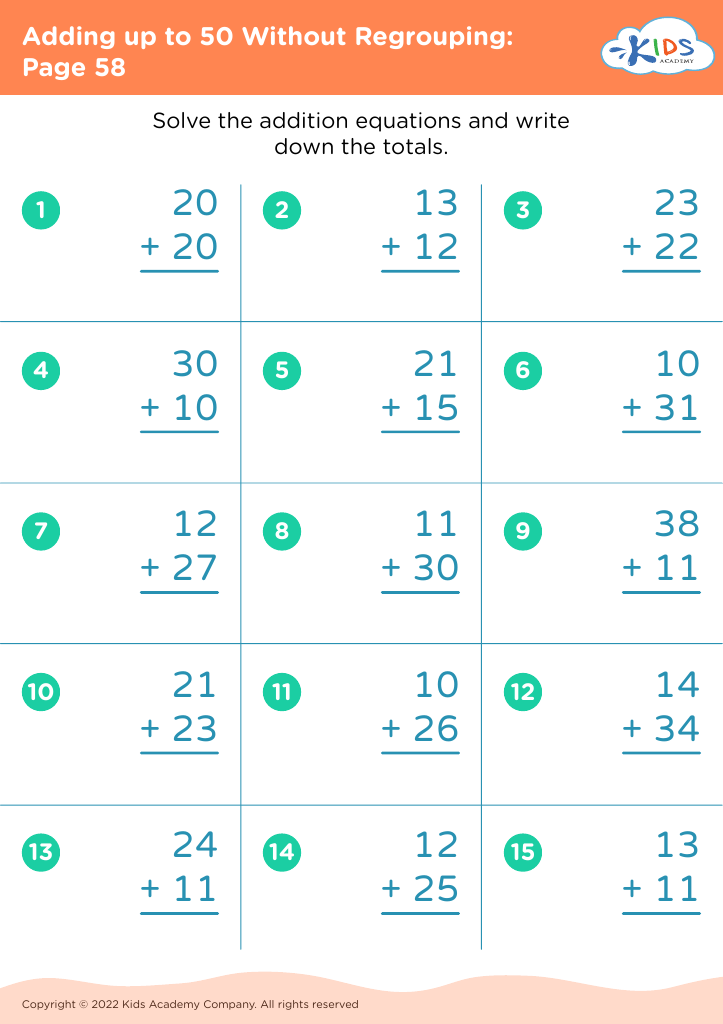

 Assign to My Students
Assign to My Students
